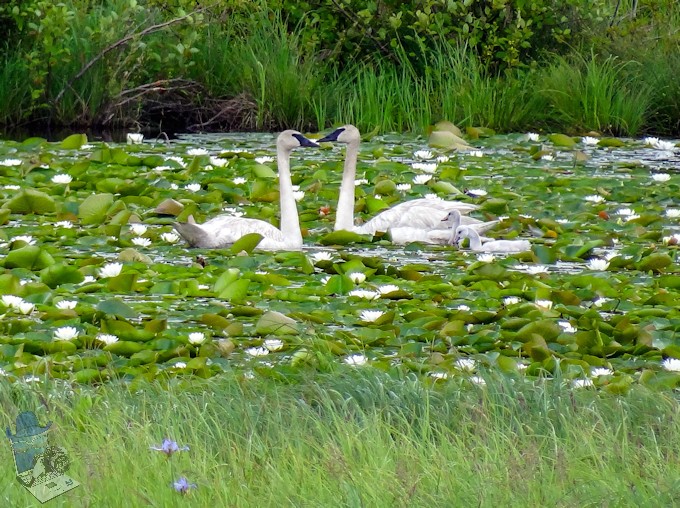A variety of birds may be seen near a pond, like colorful ducks, herons or song birds getting a drink of water. If the pond is large enough, it may be the home to Trumpeter Swans, which are the largest bird in North America and gets its name from its trumpet-like call. In a standing position, Trumpeter Swans are approximately 4 feet high. However, if the neck and legs are outstretched they can measure nearly 6 feet long from bill to feet.
Although more common today, the Trumpeter Swan was reduced to near extinction by the early 20th century as they were hunted for its feathers throughout the 1600s – 1800s. Its largest flight feathers made what were considered to be the best quality quill pens. It was a good thing ball point pens were invented.
Every year adult swans go through a flightless period in which they molt all their feathers at once thus making them flightless for a 1-2 month period of time. This typically occurs during the warmest months, namely July and August. During this period they are particularly vulnerable and may act more secretive than usual.
Trumpeter Swans may form pair bonds as early as their second winter and some may nest for the first time at three years of age. Most Trumpeters, however, don’t nest until they are four to six years old. Trumpeter Swan cygnets (young birds) are typically hatched gray in color.
Trumpeter Swan Family


